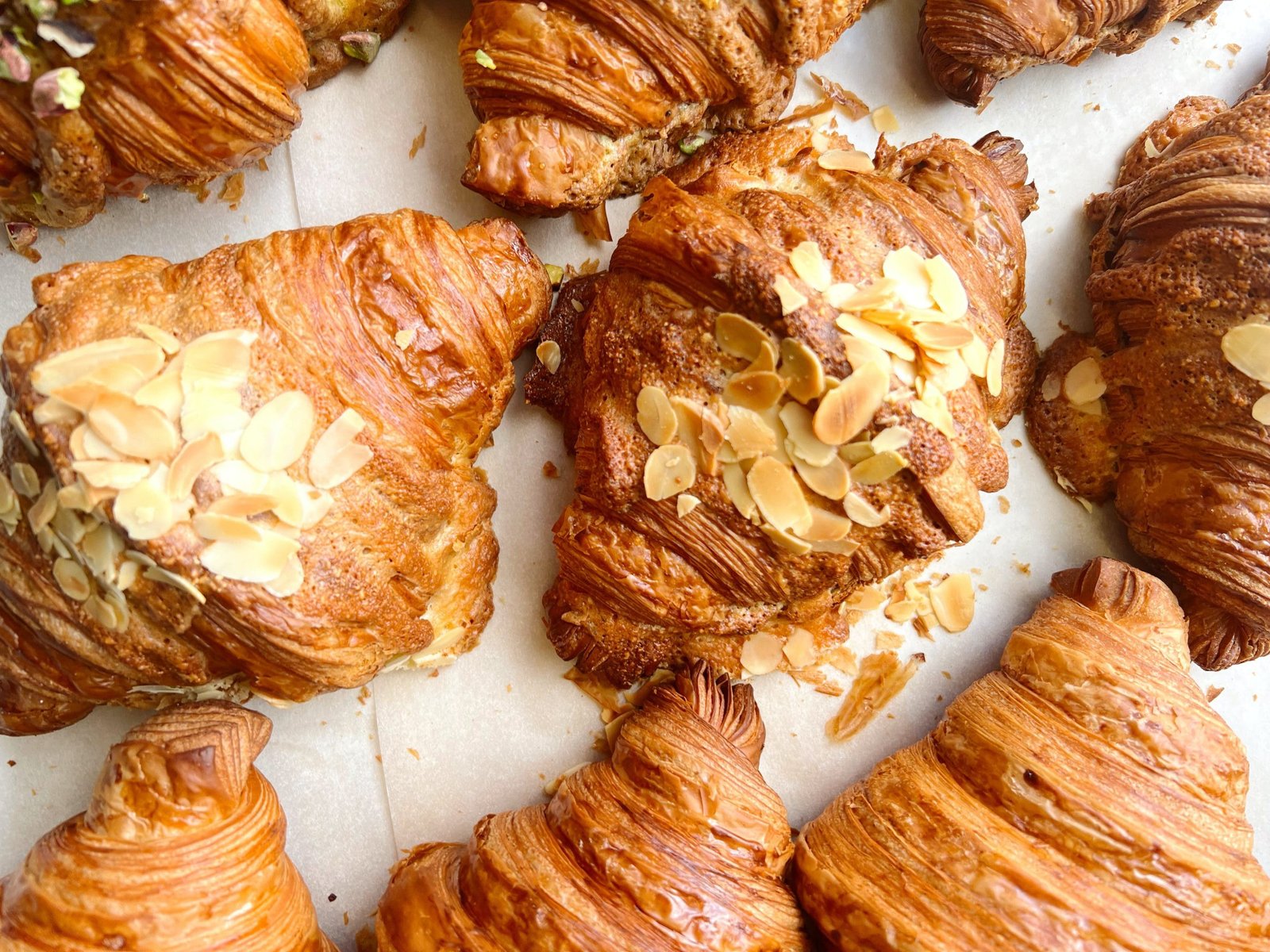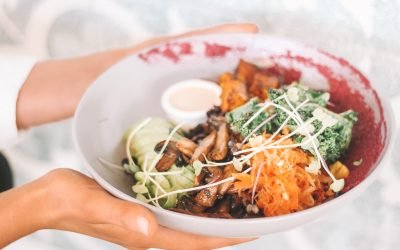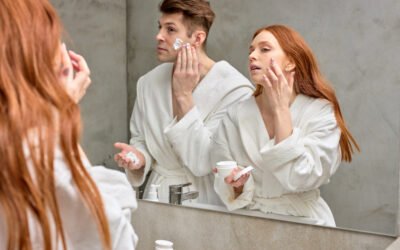I’m going to be straight to the point here. I wish sugar didn’t make your skin worse, but it does. Sugar can make acne worse in a few ways. It can directly affect the proteins in the skin, and throw off the balance of hormones that influence skin health. Does that mean you can never eat sugar if you have a skin condition? No, it doesn’t. So before you think about attempting to quit sugar for the rest of your life, please read this blog! I will give you all the tips you need to still enjoy food without causing breakouts and flare-ups. Because life without some cake would just suck, wouldn’t it?
How does sugar make acne worse?
Unfortunately, sugar does affect our skin in a few different ways. Let’s run through them:
Damage to skin proteins
Sugar is sticky. So if we have high levels of sugar in our blood it can start to stick to other things and cause some damage. This process is known as glycation.
In the skin, there are two very important proteins known as collagen and elastin. Both of these proteins help to give the skin its structure and strength, and provide elasticity to the skin. As we age, our natural production of these proteins starts to decline. This contributes to signs of ageing such as loss of elasticity, fine lines and wrinkles.
If we have high amounts of sugar in the diet, it can stick to both collagen and elastin and damage the proteins, which accelerates the rate at which our skin ages. We do not want excessive glycation happening because it’s speeding up how fast we age. Now ageing is fine – it’s a natural process, but we don’t it to be happening faster than it should.
Now, you might be thinking – you’re talking about how sugar makes wrinkles worse, not how sugar makes acne worse.
Well, not to be the bearer of bad news but this process of glycation and damaged collagen proteins can slow down wound healing. What does that mean if you have acne? It means your skin isn’t repairing as quickly as it should. It means that if you’re having treatments to help clear your skin (whether it’s chemical peels, micro-needling or laser treatments), the rate at which your skin repairs is slower than it could be. And don’t we want to support our bodies alongside these treatments?
Increases hormones that affect the skin
Three hormones have been directly linked to acne, and they are insulin, IGF-1 and testosterone. Now, an increased intake of sugar (or refined carbohydrates), has been found to increase insulin, which then increases IGF-1 which then increases testosterone. What happens when we have an increase in all three hormones? They affect how our skin naturally exfoliates itself, can increase oily production in the skin, and contribute to inflammation. This is the perfect recipe for blocked pores and cystic acne, and it’s how sugar can make hormonal acne worse.
Affects gut health
Another way that sugar can make acne worse is through it’s affect on the gut. Gut health really is the foundation of healthy skin. We need to be eating in a way that supports both gut and skin health. A high intake of sugar and refined carbohydrates, with a low intake of fruits and vegetables, affects the growth of beneficial bacteria. These beneficial bacteria are essential because they help to reduce inflammation, support skin bacteria function and help with the absorption of nutrients! If we have too many of the not-so-beneficial bacteria in our guts, it can do the opposite. Meaning increased inflammation, damage to the skin barrier and reduced nutrient absorption.
How to reduce sugar intake
Ok, so now we know the three main ways that sugar can worsen acne. But, before you vow to never touch it again, let’s talk about how it can be a part of a balanced diet. The thing you need to know about sugar is that it is addictive. When we eat sweet foods it makes us feel good, and our brains crave it. If you’ve been having high amounts of sugar, and suddenly go cold turkey it can cause some side-effects. The side effects can include headaches, increased food cravings, irritability, anxiety and fatigue. This is why so many people fail when they try to reduce their sugar intake. Because when they take it out, they feel worse without it.
As a nutritionist, my goal is to help you make changes that are sustainable. And I don’t think quitting sugar altogether is sustainable. So, I’ve got a solution for you that actually works.
HOW TO EAT TO STOP SUGAR MAKING ACNE WORSE
FOCUS ON WHAT YOU CAN ADD
Say hello to your new best friends – protein and fibre. They are your new best friends because they slow down how quickly our body absorbs sugar. That means that if you add either of these to a meal, the effect of the sugar won’t be as detrimental to your body. Let’s look at some examples.
If as a snack, you tend to go towards sweet treats, instead of cutting these sweet foods out – just add in protein or fibre before you eat the sweet thing! Let’s say you had a biscuit on an empty stomach. This will cause a rapid absorption of glucose (sugar), which causes insulin to increase to get glucose into your cells. When we do this on a daily basis, it starts to cause the other hormones such as IGF-1 and testosterone to increase – and what do these do if they get too high? They cause blocked pores, oily skin and breakouts. So, your new habit will be that before you eat the biscuit, you’re going to have a handful of nuts, or a balanced meal (let’s say chicken salad because that’s protein and fibre).
This makes it a little easier because you haven’t restricted yourself. You’ve just added something in that helps to slow the spike of sugar in your blood before you eat the thing that’s high in sugar.
Read your food labels
We should be aiming to eat no more than 30g of added sugar per day, which is around 5-6 teaspoons (depending on how big your teaspoons are, or if you’re having heaped teaspoons). Now, this might be easy to track if you know how many teaspoons of sugar you put in your tea each day. But have you ever checked the sugar content of all the packaged food you’re eating?
If you’ve not been checking – you need to start. It’s actually really easy to go over our recommended sugar intake because sugar is added to e v e r y t h i n g. I’m not even exaggerating. It actually is in everything from soups to salad dressings – you know, all those things you expect to be healthy? If you find that something you have been eating on a daily basis is pretty high in sugar, swap it out to something that is a little lower. However, please don’t go for sugar-free chocolate if you only eat chocolate once a week. It’s what we do every day that makes the difference.
Things that increase sugar cravings
Trying to reduce your sugar intake to help clear your skin is going to be a little difficult if you have intense sugar cravings. It’s empowering when you understand what can trigger sugar cravings, because you can be a bit kinder to yourself. At the moment, if you have no idea what’s causing your sugar cravings, and you keep eating loads of sugar, it might make you feel a bit defeated, or annoyed at your lack of willpower. Spoiler alert: it’s not your willpower that’s the issue, it’s these things:
Lack of sleep
Poor quality sleep, or not sleeping for 7-8 hours per night increases sugar cravings, and affects how well our body handles the sugar we eat. When we don’t sleep well, the hormones that regulate our appetite get thrown off balance, meaning we crave more food and we can’t satisfy our hunger when we do eat. As well, the food we tend to crave when we are tired is anything that helps us feel better or gives us quick bursts of energy. Do you know what foods they tend to be? High carb and high sugar foods. So the next time you think, damn I can’t stop eating today. Or, why are my sugar cravings so intense today? Check-in with yourself, how did you sleep last night?
Stress
I’m sure you’re probably aware of this one already. When we’re stressed it can increase our cravings for foods that make us feel better in the short-term. Adding things into your daily life to help to reduce stress will help you reduce your sugar intake. This can be really simple things such as spending a little more time outside, listening to music you enjoy, and getting a good night’s sleep.
Low protein and fibre intake
Remember I said these two were your new best friends? Well here are some added benefits aside from slowing down the absorption of sugar. When we eat more fibre and more protein, it helps to reduce cravings. This happens because they both help to regulate our appetite hormones, and tell our brain that we’re full.
Need some extra help?
I really hope everything in this blog has been useful for you. But I know (from experience), that reducing your sugar intake to help your skin can be difficult, so if you need a helping hand along the way I’m always here if you need me. And remember, yes sugar can make acne worse, but there are so many things you can do to help reduce your sugar intake and support your skin in the process. Step 1) Focus on what you can add!





0 Comments